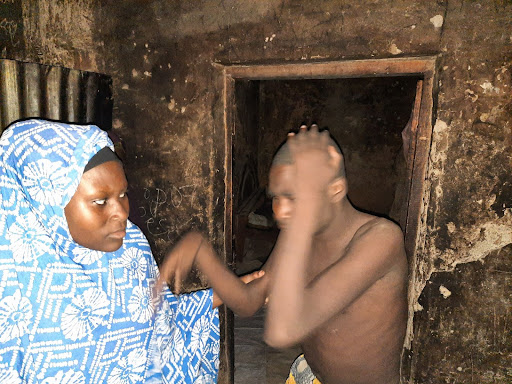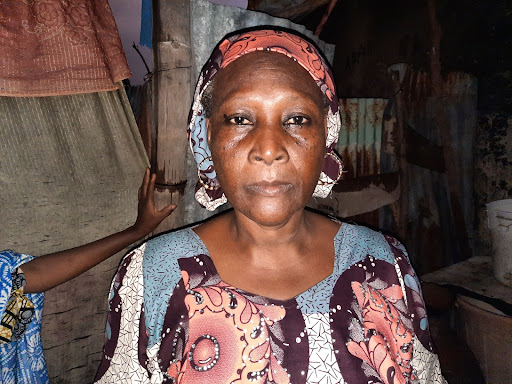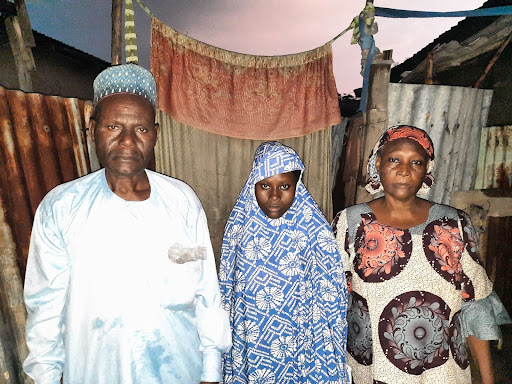Family Of Traumatised Ex-Giwa Barracks Detainee Say Help Yet To Come From Authorities
Spending five years in military detention after an arbitrary arrest has left Bana terribly and psychologically scarred, but the government is doing nothing to help.

Bana Usman has not remained the same since his five-year ordeal at Giwa Barracks, a military detention centre in Maiduguri, Northeast Nigeria. Not only did the detention take a physical toll on him, but he has also been psychologically ill since he regained freedom.
His family, however, says the Nigerian authorities have failed to support his recovery or compensate them for their troubles.
The young man had been picked up when he was 17 years old shortly after the Boko Haram insurgency broke out in 2009. He was returning home from the Sanda Kyarimi Secondary School and had been preparing to write his senior school leaving examination. His family were unable to locate or reach him until 2014 when Giwa Barracks was invaded by Boko Haram fighters and hundreds of detainees escaped. Bana was found at a hospital and in such a terrible condition that he could neither speak nor sit up.
He spent three months at the hospital. After he got better physically, it dawned on his family that he was mentally ill, so they spent another month at a psychiatric hospital. But, seven years later, Bana is still not well.

Drugs help, but no money to keep buying
Back in March, the family received a modest donation from a private source, which they used to seek medical help and purchase medicine.
“When the drugs were exhausted, his situation became bad again; he would even undress. But he is better than before; now he can eat when he is hungry and drink water when he is thirsty. He also used to just cry before but now he doesn’t,” Fannami said during an interview earlier this month. Bana sat behind her in the darkness, quiet and oblivious.
Fannami added that whenever they get enough money, they will visit the hospital again. Otherwise, there is nothing they can do.
“No, there was nothing [from the government]. Apart from you that came, no one has come to us,” she clarified.
But, in 2017, representatives from the Ministry of Health visited their house after Amnesty International, an advocacy group, notified a presidential committee about their case.
“They met me at my place of work and we came here for them to see the boy; they came and saw him with their files. They didn’t come back again. When I went to see them at the office, they told me they have forwarded the file to the Governor [Kashim Shettima]; up to now, there is nothing,” Bana’s father, Usman Abubakar, recounted.
Recently released Giwa Barracks detainees have similarly lamented not receiving compensation from the government, despite having been cleared of criminal wrongdoing.

Family, neighbours not finding it easy
Abubakar told HumAngle that, because of Banas’ condition and mannerisms, their neighbours would often complain and they, the family, had to always be around to watch him.
“I am a poor man. I appeal to the Government to help in treating the boy by even admitting him in the hospital; they should also find somewhere for us so that we can settle on our own without becoming a burden to neighbours,” he said.
Bana’s mother added that her daughter, 14-year-old Fatima Usman, had to quit school so as to be at home to cater for him. She was in Primary Four at a formal school and Primary Two at a Qur’anic school when Bana was found.
“She left all of them because there is no one to take care of him. When I worked as a cleaner, she was alone at home with the boy and the boy would sometimes run outside and disturb people; she couldn’t handle him well. So I left the work [as a cleaner] and joined her. The girl would have to be taking care of the boy’s stool because if there is no one the boy would throw the stool away,” Fannami explained.
“We really need help from the Government. All the family members are suffering for him.”
Fatima also appealed for her brother to be afforded proper medical treatment and said she would like to return to school.
“I want to be a medical doctor,” she said. “To help people who are sick.”
This report is a partnership between the African Transitional Justice Legacy Fund and HumAngle Media under the ‘Mediating Transitional Justice Efforts in North-East’ project.
Support Our Journalism
There are millions of ordinary people affected by conflict in Africa whose stories are missing in the mainstream media. HumAngle is determined to tell those challenging and under-reported stories, hoping that the people impacted by these conflicts will find the safety and security they deserve.
To ensure that we continue to provide public service coverage, we have a small favour to ask you. We want you to be part of our journalistic endeavour by contributing a token to us.
Your donation will further promote a robust, free, and independent media.
Donate HereStay Closer To The Stories That Matter




